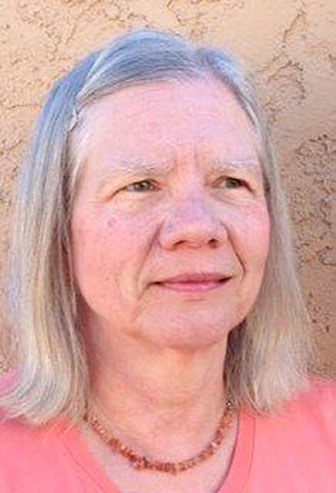Local artist working as contact tracer


Chris Kondrat is a popular local artist and long-time member of Village Gallery. We learned that she joined the team of contact tracers working to stop the spread of COVID-19 in the county, and wanted to bring you her story.
What qualifications did you need? What were the skills that you think got you the job?
A high school education was the minimum, and I also have computer skills and bilingual skills. Since I hadn’t worked for 10 years, and references were no longer available, I used my work volunteering for phone banking for census and elections, and my work with the Eldersafe Program of the Washington County Sheriff’s Office.
How long was the training, and what did it involve?
I took the online John Hopkins contact tracer training. We also got training in the software we use, and computer security instruction from Washington County. Including setting up the phone and laptop, it took about a week for all.
How much time per week are you putting in?
Everyone works a full 40 hours. We work different shifts, and the team provides coverage from 8 am-8 pm, seven days a week.
Are you employed by Washington County, the state, or???
A nonprofit, Public Health Institute, hired us under contract to Washington County. We use the computer system of Oregon Department of Human Services/Oregon Health Authority.
What are the challenges so far?
The biggest challenge is getting contacts to agree to quarantine for 14 days and be monitored every day. We have to keep personal information confidential due to HIPAA requirements, while still giving people enough information to be effective. And the requirements and the general understanding of COVID-19 are changing constantly.
It’s also been challenging to learn the computer system, which is being updated as we are using it.
Working with the different languages spoken by the clients can slow things down. Staff can cover about six-eight languages; otherwise we need to use interpretation services.
Additionally, just having enough tracers for rising case numbers; working with very new, just-hired staff and supervisors; and providing coverage seven days per week all present challenges for this effort.
Any interesting stories to share so far—anonymous of course…
In one case I wasn’t able to contact someone because she was giving birth! There’s also the complexity of some family relationships. Most people have been very cooperative with what we are asking them to do. A few opt out of the program and occasionally we do have to deal with some people with an “attitude.”
How long do you expect to keep doing this?
For me, a year or less, depending on how long we are needed.
I assume that it’s all over the phone or by virtual visits, is that correct? Does the county pay for the service?
Yes, we work out of our homes with county supplied phones and laptops. The phone can be used as an internet hotspot but you can tie into your own internet.
Anything else you’d like our readers to know?
Washington County and the tracers are working very hard to stem the spread. First, County nurses talk to COVID patients; then the contact tracers deal with all the contacts of COVID patients.
People may not know that the county can pay for food, rent, and utility bills for clients who need it. That’s something we can tell the people we talk to.
Finally, please know that COVID is real, people can be very sick, all ages are affected, and communities of color are disproportionally affected.
Washington County Public Health has shared additional information about Contact Tracing for this article:
County health departments use contact tracing to help prevent the spread of many diseases including measles, tuberculosis and sexually transmitted infections, but for COVID-19, they have had to ramp up their capacity.
Washington County had a staff of five people doing this work before COVID-19, and now they have more than 150 people on the COVID response team, which includes contact tracers like Chris, but also epidemiologists, nurses, case interviewers, case investigators, and support and administrative staff.
If you get a call from a contact tracer, please answer the phone and provide all of the information they ask for, so they can help prevent the spread of coronavirus. Contact tracers will never ask for your social security number or financial information, so be wary of anyone who asks for this information.
To watch videos on contact tracing and find more information, see Washington County’s webpages in English and Spanish.
https://www.co.washington.or.us/HHS/CommunicableDiseases/COVID-19/contact-tracing.cfm
https://www.co.washington.or.us/HHS/CommunicableDiseases/COVID-19-Espanol/rastreo-de-contacto.cfm




